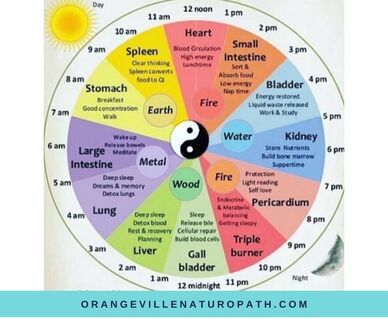Why Do I Wake Up?
There are several reasons your sleep may be interrupted, but here are the most common.
- Nighttime urination
- as we get older our bladder control can change, and pelvic floor may weaken
- some people forget to drink all day and play catch up in the evening
- herbal teas and alcohol close to bedtime can also be implicated - Blood sugar
- a dip in blood sugar or eating close to bedtime - Stress or Anxiety
- a racing mind
- stressors or thoughts from the day finally have a chance to come out (at the wrong time) if they aren't processed before you try to sleep - Pain
- pain is often worse at night, or you can't get comfortable in bed - Blue light
- phones and screens are known sleep & melatonin disruptors, the more time spent the worse the impact - Hormones
- hot flashes or perimenopause (a reduction in progesterone starting as early as 40 years old) - Restless legs or cramps
- muscle cramps or jumpy legs can be caused by nutrient deficiencies like iron, magnesium, or vitamin B6 - Digestion
- heartburn is often worse in a lying position
- bloating can be uncomfortable
- constipation can make you unsettled
- eating close to bedtime, so that your food isn't process when you are trying to rest
The root cause determines the treatment
- Each of the potential causes of waking at night require a different evaluation and approach
- Bloodwork and case history can confirm blood sugar issues, nutrient deficiencies, and hormone imbalances
- Consider the Traditional Chinese Medicine clock (see above)
- waking between 1-3am is a liver time, and many of us could use more liver support
- Consider this article on 7 Sleep Solutions
- Keep a consistent bedtime, our rhythms thrive on routine
- Experiment with not eating anything for 2 hours before bed, or having a small handful of pumpkin seeds (pepitas) to keep blood sugar balanced and take pressure off the digestive system
- Drink most of your fluids before 6pm
- Manage your stress (I have many past articles on this)
- many herbs and lifestyle strategies can help to regulate cortisol levels - Minimize screen time whenever you can, or wear blue light glasses, especially close to bedtime
- Try not to do intense workouts in the evening
- Eat more during the day
Sleep well,
Dr Christa
Book Appointment

 RSS Feed
RSS Feed